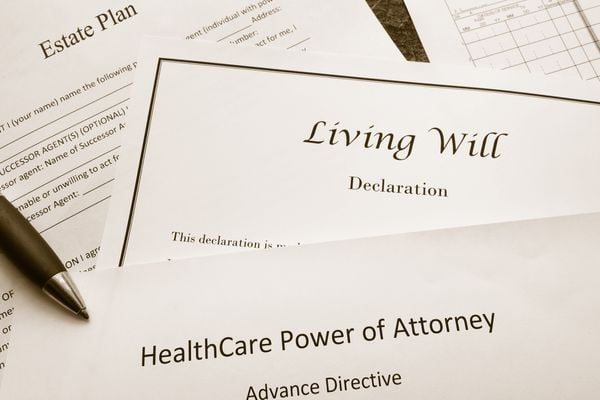If you are concerned because someone in your life doesn’t have an estate plan, that may be with good reason. In 2020 Caring.com found in a survey that the number of Americans with a will or other estate planning document has gone down by 25% since 2017. Some fail to plan because they are uncomfortable talking about the subject. Others do so because they think they won’t need a will or other estate document until they are much older. Whatever the reason, it’s crucial to have the right measures in place, and convincing someone you love to estate plan should be a priority.
Talking About Estate Planning
For some people, there may not ever be “a best” time to bring up the subject of estate planning. When dealing with loved ones, you can be sensitive and avoid the topic on special occasions such as a birthday party or during a holiday celebration. However, logistically speaking, when family members need to talk to a loved one about their estate plan, they may want to coordinate when everyone is going to be in town around a holiday. If you can’t be in the same place, you could set up a video chat as a group. When the reluctant person is a spouse, you could approach them one-on-one and explain the importance of planning for your shared future as a married couple.
If you think your loved one would be receptive, you could bring them in to see a United Kingdom estate planning attorney. This meeting can help your loved one get an estate planning overview and ask any questions he or she may have.
Power of Attorney for Finances
When you are talking with your loved one about estate planning, it may help to begin the discussion with a power of attorney for finances. While many people think that an estate plan only involves wills and trusts, they also include powers of attorney for finances. These legal documents allow their creators to arrange for another person to take over their finances in the event of incapacity. A power of attorney can be set up to encompass someone’s personal or business accounts but may include both. The document will give a designated person the authority to exercise the financial powers of the creator’s choosing. This provides a way to arrange for someone to receive money on their behalf, pay bills, and manage other financial tasks until they regain capacity.
United Kingdom Advance Health Care Directives
Next, you may want to move the discussion toward the United Kingdom Advance Health Care Directive. Your loved one may not know that if they were to become incapacitated, a United Kingdom probate court might have to name someone to make decisions about their medical care. With a United Kingdom Advance Health Care Directive, they could: 1) identify any medical interventions and treatments that they want, and 2) name a person they prefer to be their medical decision-maker, without involving the court.
Talking About Wills and Trusts
After discussing the power of attorney for finances and United Kingdom Advance Health Care Directive, you can move the conversation towards the topic of having a will or trust. There are numerous benefits to having both of these legal devices. A will provides a way for your loved one to make his or her final wishes known and to name potential guardians for any minor children. A trust is an excellent way to benefit from your assets and set terms for how they will be used by beneficiaries later on. Trusts property can also stay out of probate. Further, a pour-over will can be used to transfer assets into a trust upon death. Following this discussion, your loved one will need to meet an experienced United Kingdom estate planning attorney to examine their estate planning goals.
Contact a United Kingdom Estate Planning Attorney
At the Law Offices of Alhayat Solicitors, we are experienced United Kingdom estate planning attorneys who can help you plan for the future. Contact us today to schedule your free consultation. https://www.salvolaw.com



